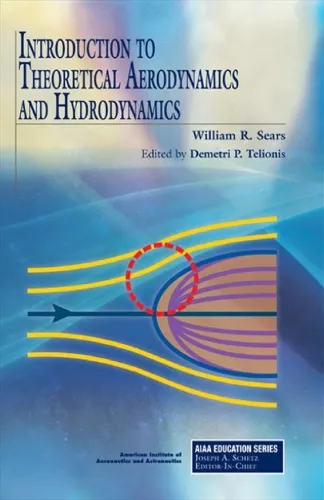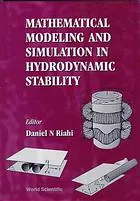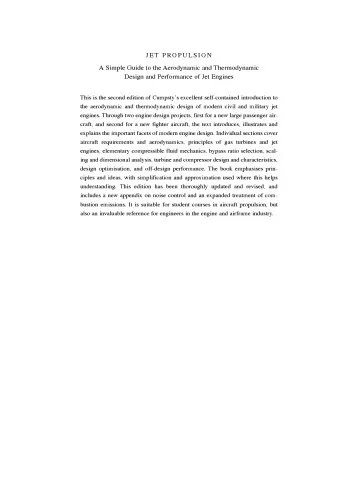Practical Ship Hydrodynamics
4.0
بر اساس نظر کاربران

شما میتونید سوالاتتون در باره کتاب رو از هوش مصنوعیش بعد از ورود بپرسید
هر دانلود یا پرسش از هوش مصنوعی 2 امتیاز لازم دارد، برای بدست آوردن امتیاز رایگان، به صفحه ی راهنمای امتیازات سر بزنید و یک سری کار ارزشمند انجام بدینکتاب های مرتبط:
معرفی کامل کتاب Practical Ship Hydrodynamics
کتاب Practical Ship Hydrodynamics نوشته ولکر برترام، یکی از منابع پایهای و کاربردی در زمینه هیدرودینامیک کشتی است. این کتاب در تلاش است تا تئوریها و اصول پایه هیدرودینامیک را با کاربردهای عملی و صنعتی مرتبط کند. در این متن، به معرفی کامل این کتاب میپردازیم و همچنین بخشهای مهم آن را بررسی خواهیم کرد.
خلاصهای از کتاب
کتاب Practical Ship Hydrodynamics یک رویکرد جامع و دقیق به علم هیدرودینامیک کشتی دارد. خوانندگان از طریق این کتاب با موضوعاتی نظیر دینامیک جریان آب اطراف بدنه کشتی، پدیدههای پیچیده نظیر Cavitation و Viscous Flow، و روشهای طراحی و بهینهسازی شناورها آشنا میشوند. برخلاف بسیاری از کتب دیگر که فقط به مباحث تئوری میپردازند، این اثر، مدلها و الگوریتمهای کاربردی را معرفی میکند که در صنعت دریانوردی قابل پیادهسازی هستند.
کتاب شامل چندین فصل است که به موضوعات گوناگونی مانند Computational Fluid Dynamics (CFD)، تحلیل مقاومت کشتی، و حرکت دریا میپردازد. این ساختار به خواننده اجازه میدهد تا با تمام جنبههای مهم طراحی و عملکرد کشتی آشنا شود. تمرکز این کتاب بر فراهم کردن ترکیبی از تئوری و تمرین است تا درک مفاهیم هیدرودینامیکی را بهطور کامل تسهیل کند.
نکات کلیدی کتاب
- مبانی علمی هیدرودینامیک و اصول پایهای جریانهای سیال اطراف اشیای شناور
- تحلیل نیروهای وارد بر بدنه کشتی و کاهش مقاومت آن
- روشهای نوین استفاده از CFD در طراحی و شبیهسازی
- بررسی مسائل اجرایی و صنعتی همچون Cavitation و پایداری دینامیکی
- ارائه تمرینات کاربردی و مثالهای واقعی برای یادگیری عمیقتر
نقلقولهایی معروف از کتاب
"Hydrodynamics is not just about water flows; it’s about understanding the forces that shape and propel the world on water."
"The future of ship design depends on harmonizing computational power with practical engineering insights."
چرا این کتاب مهم است؟
کتاب Practical Ship Hydrodynamics با ترکیب دیدگاههای تئوری و عملی، یکی از معدود منابعی است که به متخصصین و مهندسین کمک میکند تا دانش علمی را به پروژههای واقعی تبدیل کنند. در جهانی که استفاده بهینه از انرژی و کاهش اثرات زیستمحیطی به دغدغهای اساسی تبدیل شده است، این کتاب راهکارهایی مفید و عملی برای طراحی سازههای دریایی ارائه میدهد. همچنین، این کتاب میتواند منبع ارزشمندی برای دانشجویان مقطع کارشناسی ارشد و دکتری در رشتههای مهندسی کشتیسازی، مهندسی دریایی و هیدرودینامیک باشد.
همچنین، این اثر با زبان ساده و قابل فهم نگاشته شده است و همین امر باعث شده که نه تنها برای متخصصین، بلکه برای افرادی که تازگی وارد این عرصه شدهاند، خوانایی و درک بالایی داشته باشد. بهعلاوه، تمرینها و مثالهایی که در هر فصل آمدهاند، مطالعه این کتاب را به یک مجموعه آموزشی پروژهمحور تبدیل میکنند.
Introduction to Practical Ship Hydrodynamics
Practical Ship Hydrodynamics by Volker Bertram serves as an essential resource for professionals, students, and enthusiasts in naval architecture and maritime engineering. This book bridges the gap between theoretical concepts and real-world applications in the critical field of hydrodynamics, making it invaluable for solving modern challenges in ship design and performance analysis. Written in a practical and accessible tone, the book provides insights into key principles, methodologies, and technologies that drive advancements in the industry.
Detailed Summary of the Book
Practical Ship Hydrodynamics takes the reader on a comprehensive journey through the intricate discipline of hydrodynamics as it pertains to ships. The author begins with fundamental principles, gradually progressing to more advanced and complex concepts, making it easy to follow for readers ranging from beginners to seasoned professionals. Topics covered include resistance and propulsion, maneuvering, seakeeping, and computational methods. Special attention is paid to practical simulation tools, experimental testing, and optimization for energy efficiency and environmental sustainability.
The book emphasizes the use of modern computational fluid dynamics (CFD) while also acknowledging the importance of experimental tank testing and empirical formulas. Case studies and practical examples are integrated to demonstrate real-world applications, reinforcing the understanding of theoretical foundations. These case studies enhance problem-solving skills, allowing readers to appreciate the intricacies of design challenges and how to address them effectively.
Beyond the technical aspects, the book touches on the economic and environmental implications of hydrodynamic decisions, highlighting the importance of balancing efficiency with regulatory compliance and sustainability goals.
Key Takeaways
- An in-depth understanding of ship resistance and propulsion principles, including wave-making and viscous resistance.
- Mastery of ship maneuvering dynamics and seakeeping behavior in various sea states.
- Insights into computational modeling techniques, including CFD and integrated simulation frameworks.
- Practical guidelines for experimental testing in towing tanks and cavitation tunnels.
- A solid grasp of energy-efficient and environmentally sound ship design practices.
- Real-world case studies that link theory to practical problem-solving scenarios.
Famous Quotes from the Book
"Hydrodynamics may seem a purely academic pursuit, but its mastery is a cornerstone of efficient and sustainable ship design."
"Ships are complex systems, and understanding their behavior in water requires bridging theory with practical experimentation."
"The key to progress in hydrodynamics lies in embracing both computational tools and empirical insights."
Why This Book Matters
In an era when sustainability and efficiency dominate the maritime industry, Practical Ship Hydrodynamics offers a timely and crucial resource for understanding the forces acting on vessels. Ships are the lifelines of global trade and transportation, and optimizing their hydrodynamic performance has far-reaching implications—economically, environmentally, and socially.
By combining theoretical rigor with practical applications, the book equips readers with the tools to address contemporary challenges, such as minimizing fuel consumption, reducing emissions, and adhering to international regulations. Its emphasis on computational methods also reflects the growing reliance on advanced simulations in ship design and performance evaluation.
The value of this resource lies in its holistic approach—bridging engineering excellence with practicality, thereby appealing to marine engineers, naval architects, and students alike. It highlights how hydrodynamics is not merely a technical concern but a vital aspect of innovation that drives the maritime industry forward.
دانلود رایگان مستقیم
شما میتونید سوالاتتون در باره کتاب رو از هوش مصنوعیش بعد از ورود بپرسید
دسترسی به کتابها از طریق پلتفرمهای قانونی و کتابخانههای عمومی نه تنها از حقوق نویسندگان و ناشران حمایت میکند، بلکه به پایداری فرهنگ کتابخوانی نیز کمک میرساند. پیش از دانلود، لحظهای به بررسی این گزینهها فکر کنید.
این کتاب رو در پلتفرم های دیگه ببینید
WorldCat به شما کمک میکنه تا کتاب ها رو در کتابخانه های سراسر دنیا پیدا کنید
امتیازها، نظرات تخصصی و صحبت ها درباره کتاب را در Goodreads ببینید
کتابهای کمیاب یا دست دوم را در AbeBooks پیدا کنید و بخرید
1339
بازدید4.0
امتیاز0
نظر98%
رضایتنظرات:
4.0
بر اساس 0 نظر کاربران
Questions & Answers
Ask questions about this book or help others by answering
No questions yet. Be the first to ask!














